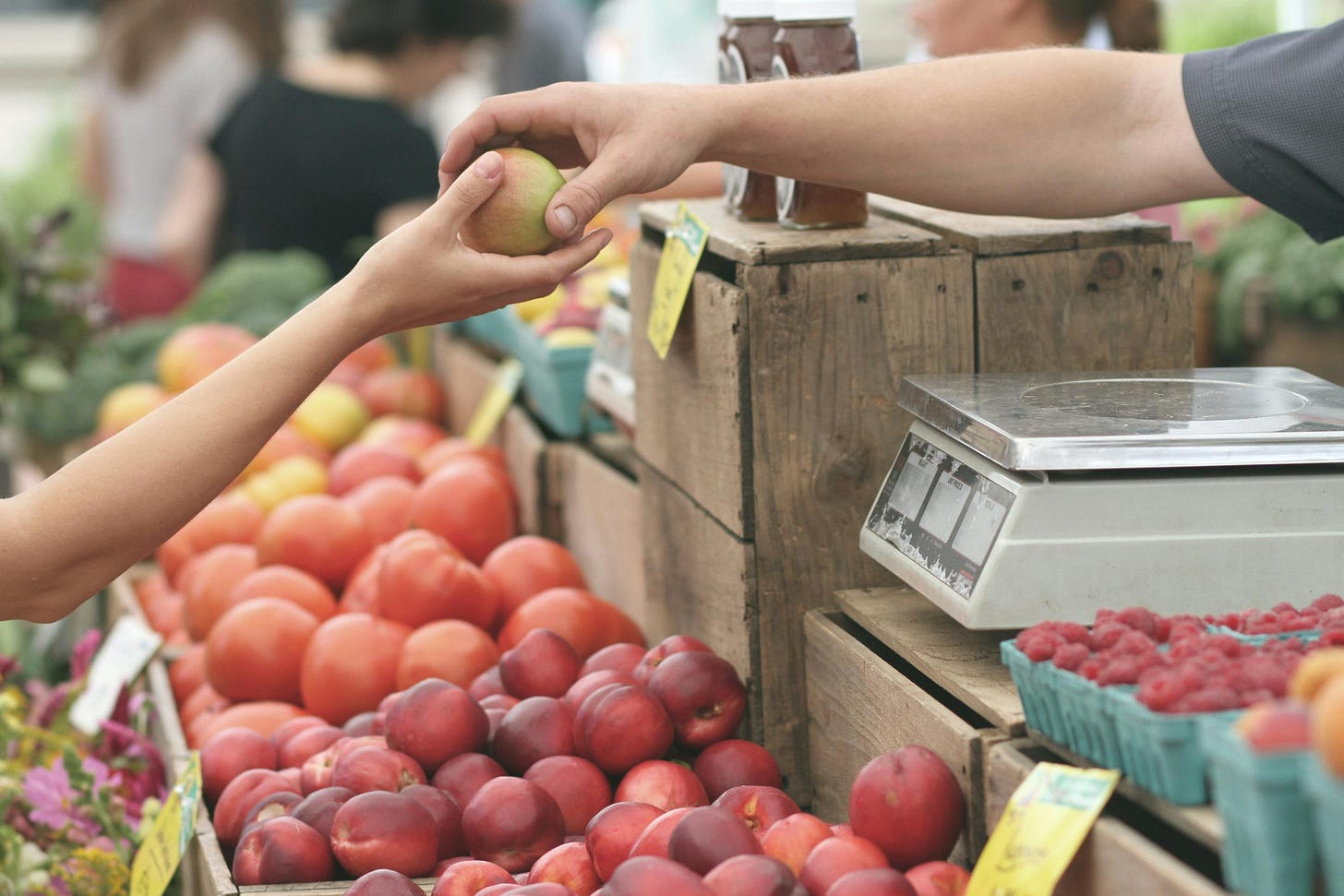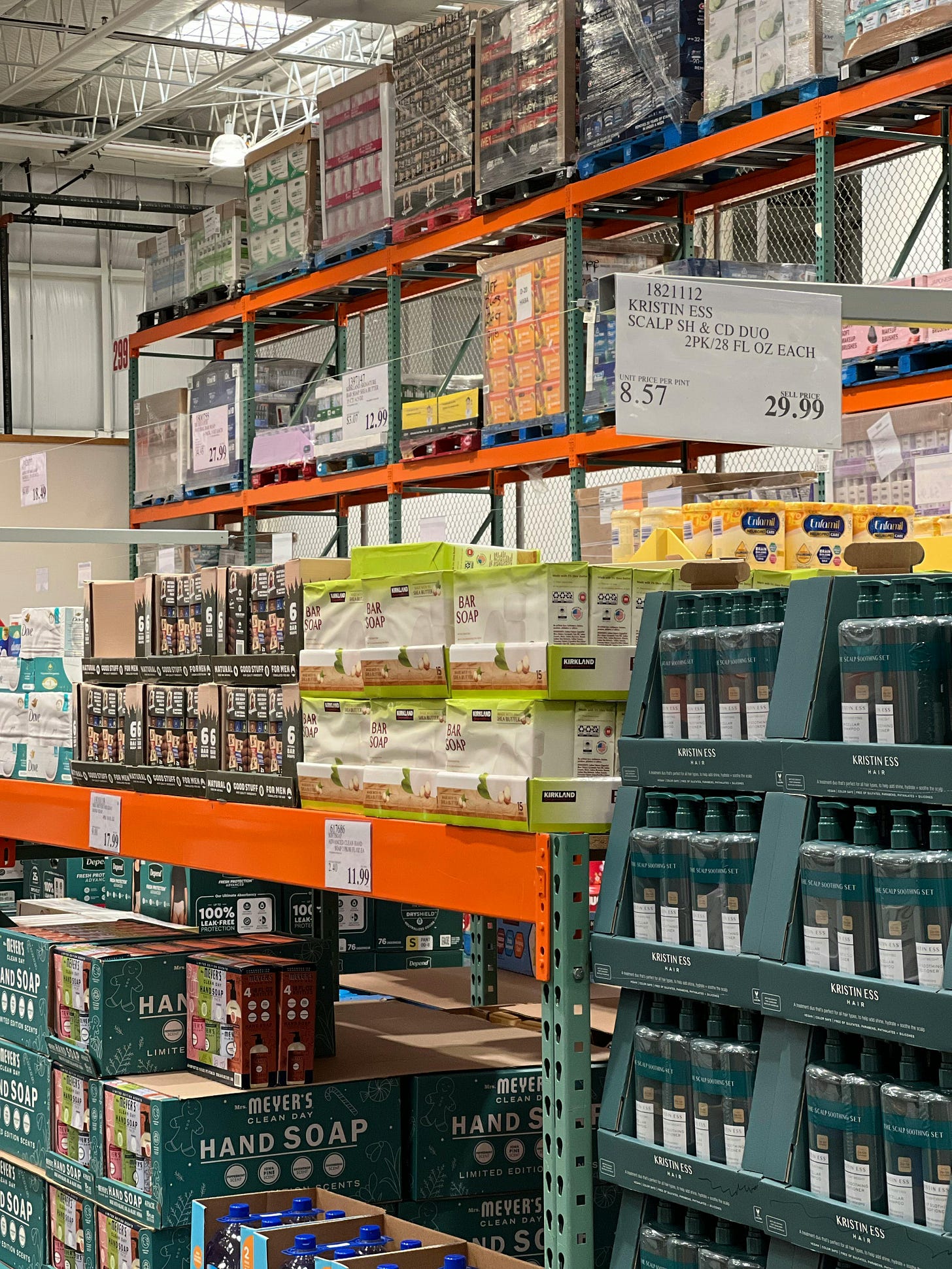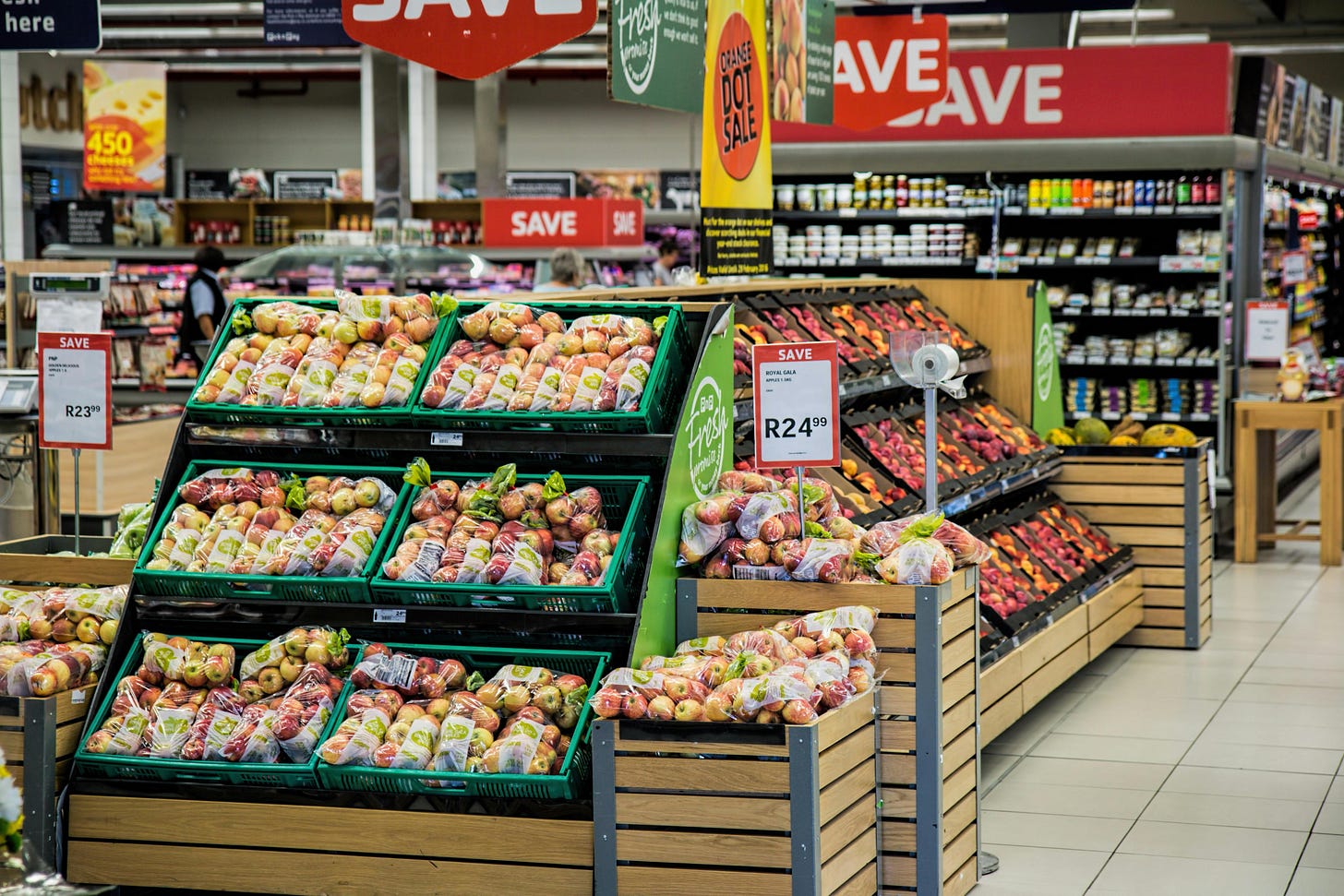From Cart to Kitchen: Mastering Grocery Budgets When Money's Tight
Smart Shopping Strategies to Eat Well and Spend Less
Saving money on non-discretionary items like food can help during times of recession or stagflation. Although we are not “officially” in a recession now, ongoing tariff negotiations and an uncertain economy has translated into higher prices for groceries and food.
The Consumer Price Index, or CPI, is a measure of the basket of goods that Americans typically buy and also a measure of inflation. The CPI crept up 0.2 percent from February 2025 to March 2025, and up 2.4 percent from March 2024. The CPI for all food went up 0.4 percent from February 2025 to March 2025, and food prices were 3.0 percent higher than in March 2024.
Food price inflation varied depending on if the food was purchased for home or bought outside, like going to restaurants:
Food at home (groceries) CPI increased 0.5 percent from February 2025 to March 2025, and 2.4 percent higher than a year earlier in March 2024.
Food outside the home (dining out) CPI increased 0.4 percent in March 2025 and 3.8 percent higher than March 2024.
Although you can`t control the economy and where it`s going, you can control what you buy and bring to the table. This can have a beneficial impact on your finances while teaching you how to eat healthy on a budget.
Here are some ways to save on your food bill and keep your menu healthy and interesting.
Your Local Farmers Market
Farmers Markets are a haven for local farmers, bakers, and specialty food crafters to bring organically grown produce to you; typically at a lower cost, because they are cutting out the middleman in the supply chain.
Shop smart.
Buy things you would normally buy at the grocery store, like vegetables, fruit, jams and other items and avoid things you don`t need.
The good thing about buying things at a Farmers Market is that those items generally have a longer shelf life than what you`d buy at the grocery store.
And if you're worried about pesticides and chemicals, the certified organic label ensures that what you and your family consume is both wholesome and nutritious.
Buy in Bulk
Buying staple items and food with a long shelf life can help lower the cost of your monthly food bills.
The key is not to overspend and overbuy.
That is where having weekly or monthly food planning is key.
Plan for the week ahead, Monday can be pasta night, Tuesday, a stir fry night with rice, and end the week on Friday with a gourmet meal like Beef Wellington using dough you made the night before.
Shelf-stable foods generally last longer, and mixing them into your weekly meal planning is a good way to reduce expenses.
They key it to not overspend and overbuy.
Check your current inventory, organize your pantry and see what you have enough of and what you need to buy more of.
Check out other grocery stores
My mom shops at different stores to find great deals on things when cooking.
She goes to 2 to 3 stores and buys produce, meats and other items to make dinner. If we`re having a pasta night with meat sauce it means we're getting a mix of vegetables from the local store, herbs from her garden and ground beef from a local butcher.
This approach enhances both flavor and substantial cost savings.
Stores offer discounts on produce and other items because they can be overstocked and pass these savings on to consumers. Safeway, Grocery Outlet and Smart & Final have weekly discounts and coupons you can use to save on particular items.
The key is to keep looking for good deals, budget where you can and mix that into daily and weekly meal planning and snacks.
Other ways to save money
Plan, plan and plan…: Plan ahead for weekly meals and buy accordingly, stick to things that you need and not things you're most likely going to trash. That`s where having a grocery list comes in handy.
What's left in the Fridge?: Chances are you have items in your fridge that are still good to eat. Yesterday`s meatloaf can be made into pasta sauce later in the week. Don't overlook stuff that can be consumed or made into another dish.
Box it, Pack it, Freeze it: Store leftovers in airtight containers or resealable bags. For large batches—like homemade pasta sauce—freeze any extras to enjoy later.
Being mindful of your grocery budget and planning out your meals doesn`t mean you have to sacrifice on taste, flavor and nutrition, it just requires smart shopping, and a bit of creativity in the kitchen. By learning to cook with versatile ingredients, buying in-season produce, and making use of leftovers, you can create delicious, nourishing meals that won’t break the bank.
With a little preparation eating well on a tight budget becomes not just possible—but enjoyable.
Howie Lim is an entrepreneur and personal finance advocate splitting time between San Francisco and Tokyo. With a background in behavioral economics and a passion for financial literacy, Howie has spent over a decade studying how individuals can develop healthier relationships with money. When not analyzing investment strategies or interviewing successful savers, Howie can be found exploring neighborhood markets or testing minimalist living principles across two continents.






